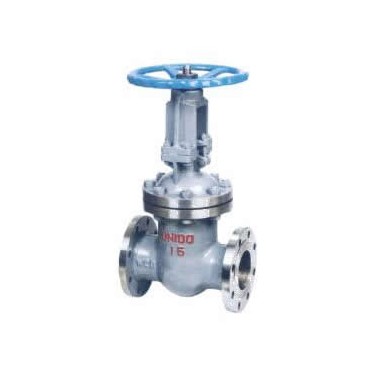Tel:0577-86915966 / 86935966
Phone: 13906655966

location:Home / Products / Forged steel valve / Cast steel gate valve


The opening and closing components of cast steel gate valves are gate plates, whose movement direction is perpendicular to the direction of the fluid. Gate valves can only be fully opened and fully closed, and cannot be adjusted or throttled. The gate has two sealing surfaces, and the commonly used mode of gate valve is that the two sealing surfaces form a wedge shape. The wedge angle varies depending on the valve parameters, usually 50, and is 2 ° 52&# 039; when the medium temperature is not high. The gate plate of a wedge gate valve can be made into a whole, called a rigid gate plate; It can also be made into a gate that can produce slight deformation to improve its processability and compensate for the deviation of the sealing surface angle during the processing. This type of gate is called an elastic gate.
Classification of cast steel gate valves
Cast steel gate valves: According to materials, they are divided into carbon steel gate valves, stainless steel gate valves, low alloy steel gate valves (high-temperature resistant chromium molybdenum steel belongs to this category), low-temperature steel gate valves, etc.
Under various cast steel gate valves, there are various specific steel grades commonly used as follows:
1. The grades of carbon steel gate valve castings include WCA, WCB, WCC, LCB, etc; Applicable temperature: -46 ° C~425 ° C.
2. Stainless steel gate valve casting grades: 301 stainless steel, CF8 stainless steel (corresponding to forging 304 stainless steel), CF8M stainless steel (corresponding to forging 316 stainless steel), etc; Applicable temperature: -198 ° C~816 ° C.
3. Low alloy steel is divided into high-temperature alloy steel and high-strength low alloy steel, among which high-temperature alloy steel is commonly referred to as chromium molybdenum steel.
The casting grades of chromium molybdenum steel gate valves are ZG1Cr5Mo, ZG15Cr1MoV, ZG20CrMoV, WC6, WC9, C12A, etc. Applicable temperature: 550 ° C~750 ° C.
The temperature applicable to each specific grade of material varies depending on the actual operating conditions.

If you have any questions or suggestions regarding the product, or if you would like to know, you can contact us at any time.
Contact Us